February 01, 2022 | Karen Warmkessel
University of Maryland School of Medicine-Led Research Finds Losing Excess Weight and Avoiding Weight Gain Linked to Lower Risk of Precancerous Adenomas
Weight loss for adults, particularly those who are overweight or obese, may reduce their risk of developing a type of polyp that can lead to colorectal cancer, according to a new study led by researchers at the University of Maryland School of Medicine (UMSOM). Findings were published today in the journal JNCI Cancer Spectrum.
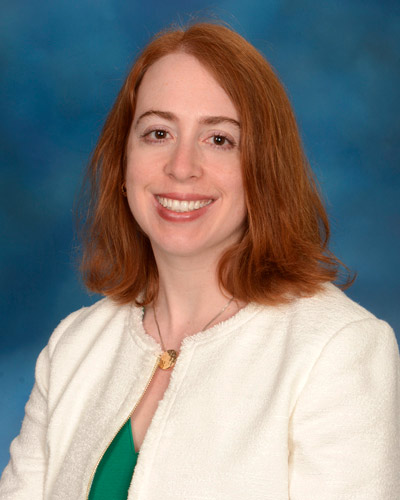 Losing weight from early to late adulthood (up to the mid-70s) – at least two pounds per decade – reduced an individual’s risk for developing precancerous growths, or adenomas, by 46 percent, the investigators reported. Study findings particularly support a benefit of weight loss for adults who are overweight or obese. Weight loss among those who were overweight or obese at age 20 was associated with a more than 60 percent reduction in risk, whereas there was no association for those with a lower body mass index at age 20.
Losing weight from early to late adulthood (up to the mid-70s) – at least two pounds per decade – reduced an individual’s risk for developing precancerous growths, or adenomas, by 46 percent, the investigators reported. Study findings particularly support a benefit of weight loss for adults who are overweight or obese. Weight loss among those who were overweight or obese at age 20 was associated with a more than 60 percent reduction in risk, whereas there was no association for those with a lower body mass index at age 20.
On the flip side, gaining weight through the decades increased a person’s risk of developing colorectal adenomas. The study found that gaining about six pounds or more every five years was associated with a 30 percent increased risk of this type of growth.
“Our research suggests that avoiding weight gain in adulthood may help lower an individual’s chance of developing colorectal adenomas, which may in turn reduce the risk of developing colorectal cancer,” said the senior author, Kathryn Hughes Barry, PhD, MPH, Assistant Professor in the Department of Epidemiology and Public Health at the UMSOM and a cancer epidemiology researcher at the University of Maryland Marlene and Stewart Greenebaum Comprehensive Cancer Center. “Our results also suggest that weight loss in adulthood, especially for adults who are overweight or obese, may help reduce the risk of colorectal adenoma, among other potential health benefits.”
 Shisi He, MS, a doctoral student in molecular epidemiology in the Department of Epidemiology and Public Health at UMSOM, is the first author of the study.
Shisi He, MS, a doctoral student in molecular epidemiology in the Department of Epidemiology and Public Health at UMSOM, is the first author of the study.
More than 73 percent of adults in the United States aged 20 years and older are overweight or obese, according to the U.S. Centers for Disease Control and Prevention. Obesity is a risk factor for colorectal adenomas and colorectal cancer, which is the third most common cancer and the third leading cause of cancer-related death among both men and women in the U.S. Overall, the death rate from colorectal cancer has decreased in part as the result of better screening and earlier detection, but has been on the rise in younger adults.
Dr. Barry said that previous research has primarily focused on adenoma risk relating to obesity or body mass index at one point in time rather than through the years. Fewer studies have evaluated the role of weight changes in adenoma risk. Of these studies, most focused on weight gain.
In the current study, researchers examined weight change – both weight gain and weight loss – over three periods of adulthood in relation to colorectal adenoma. The researchers used data from the Prostate, Lung, Colorectal and Ovarian (PLCO) Cancer Screening trial, which was a large randomized controlled trial in the United States that enrolled 154,942 men and women ages 55 to 74 from 1993 to 2001 to evaluate the effectiveness of different screening approaches in preventing death from colorectal cancer, among other cancers.
The current study evaluated 17,629 PLCO screening arm participants who had available weight data, reported no history of colorectal polyps or other colon conditions, received a negative result (no polyps or cancer) on a screening test called flexible sigmoidoscopy at the start of the trial and received a follow-up sigmoidoscopy three or five years later. Of these, slightly more than 1,000 people went on to develop an adenoma in the lower part of the colon (distal colon) or rectum in the follow-up period. The participants self-reported their past weight at different ages at the start of the trial.
“Our study is unique because we were able to study both weight loss and weight gain in different time periods in adulthood in relation to colorectal adenoma. A further strength was our ability to study newly-developed adenomas by leveraging data from colorectal cancer screening tests at two different time points in the PLCO trial,” Dr. Barry said. “This helped reduce the possibility that existing disease could have caused the weight change, rather than the other way around.”
 “Obesity is a known risk factor for colorectal cancer, which remains a leading cause of cancer related-death in the United States,” said E. Albert Reece, MD, PhD, MBA, Executive Vice President for Medical Affairs, University of Maryland, Baltimore, and the John Z. and Akiko K. Bowers Distinguished Professor and Dean of UMSOM. “The results of this study underscore the importance of maintaining a healthy weight throughout adulthood to help prevent adenomas – which could ultimately result in a decrease in colorectal cancers. This public health message could help to save lives.”
“Obesity is a known risk factor for colorectal cancer, which remains a leading cause of cancer related-death in the United States,” said E. Albert Reece, MD, PhD, MBA, Executive Vice President for Medical Affairs, University of Maryland, Baltimore, and the John Z. and Akiko K. Bowers Distinguished Professor and Dean of UMSOM. “The results of this study underscore the importance of maintaining a healthy weight throughout adulthood to help prevent adenomas – which could ultimately result in a decrease in colorectal cancers. This public health message could help to save lives.”
The research was funded by the National Cancer Institute (K07 CA230182), the National Cancer Institute Intramural Research Program, Queen’s University Belfast and the Maryland Department of Health’s Cigarette Restitution Fund Program. The PLCO Cancer Screening Trial is supported by the Intramural Research Program of the Division of Cancer Epidemiology and Genetics at the National Cancer Institute and by contracts from the Division of Cancer Prevention, National Cancer Institute.
Shisi He, MS, Sonja I. Berndt, PharmD, PhD, Andrew T. Kunzmann, PhD, Cari M. Kitahara, PhD, MHS, Wen-Yi Huang, PhD, MSPH, Kathryn Hughes Barry, PhD, MPH. Weight Change and Incident Distal Colorectal Adenoma Risk in the PLCO Cancer Screening Trial. JNCI Cancer Spectrum https://doi.org/10.1093/jncics/pkab098
About the University of Maryland School of Medicine
Now in its third century, the University of Maryland School of Medicine was chartered in 1807 as the first public medical school in the United States. It continues today as one of the fastest growing, top-tier biomedical research enterprises in the world -- with 46 academic departments, centers, institutes, and programs, and a faculty of more than 3,000 physicians, scientists, and allied health professionals, including members of the National Academy of Medicine and the National Academy of Sciences, and a distinguished two-time winner of the Albert E. Lasker Award in Medical Research. With an operating budget of more than $1.2 billion, the School of Medicine works closely in partnership with the University of Maryland Medical Center and Medical System to provide research-intensive, academic and clinically based care for nearly 2 million patients each year. The School of Medicine has nearly $600 million in extramural funding, with most of its academic departments highly ranked among all medical schools in the nation in research funding. As one of the seven professional schools that make up the University of Maryland, Baltimore campus, the School of Medicine has a total population of nearly 9,000 faculty and staff, including 2,500 students, trainees, residents, and fellows. The combined School of Medicine and Medical System (“University of Maryland Medicine”) has an annual budget of over $6 billion and an economic impact of nearly $20 billion on the state and local community. The School of Medicine, which ranks as the 8th highest among public medical schools in research productivity (according to the Association of American Medical Colleges profile) is an innovator in translational medicine, with 606 active patents and 52 start-up companies. In the latest U.S. News & World Report ranking of the Best Medical Schools, published in 2021, the UM School of Medicine is ranked #9 among the 92 public medical schools in the U.S., and in the top 15 percent (#27) of all 192 public and private U.S. medical schools. The School of Medicine works locally, nationally, and globally, with research and treatment facilities in 36 countries around the world. Visit medschool.umaryland.edu
About the University of Maryland Marlene and Stewart Greenebaum Comprehensive Cancer Center
The University of Maryland Marlene and Stewart Greenebaum Comprehensive Cancer Center (UMGCCC) is a National Cancer Institute-designated Comprehensive Cancer Center in Baltimore. The center is a joint entity of the University of Maryland Medical Center and University of Maryland School of Medicine. It offers a multidisciplinary approach to treating all types of cancer and has an active cancer research program. It is ranked among the top cancer programs in the nation. www.umgccc.org.
Contact
Karen Warmkessel
Media Relations Senior Manager
University of Maryland Medical Center
Email: kwarmkessel@umm.edu
Cell: (410) 404-1532
Related stories

Tuesday, October 01, 2024
Cancer Patients Who Experience Cognitive Decline After Radiation Treatment for Brain Metastases May Regain Full Neurocognitive Function, New Study Suggests
Nearly 40 percent of cancer patients who experienced memory loss, brain fog and other cognitive difficulties after radiation treatment for brain metastases regained full neurocognitive function within six months, according to a new analysis by radiation oncology researchers at the University of Maryland Greenebaum Comprehensive Cancer Center (UMGCCC).
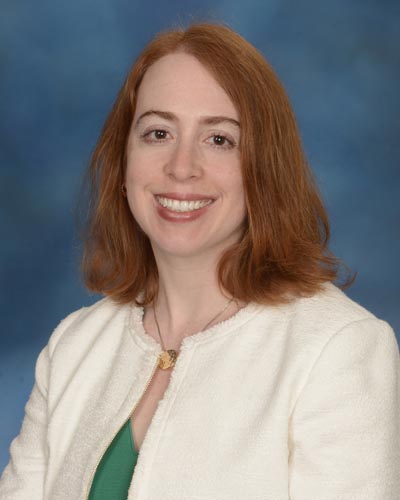
Friday, July 12, 2024
Study: Living in Disadvantaged Neighborhoods Influences Stress-Related Genes, Which May Contribute to Aggressive Prostate Cancer in African American Men
Those living in disadvantaged neighborhoods have significantly higher activity of stress-related genes, new research suggests, which could contribute to higher rates of aggressive prostate cancer in African American men. The study, which was co-led by the University of Maryland School of Medicine (UMSOM) and Virginia Commonwealth University (VCU), was published today in JAMA Network Open.
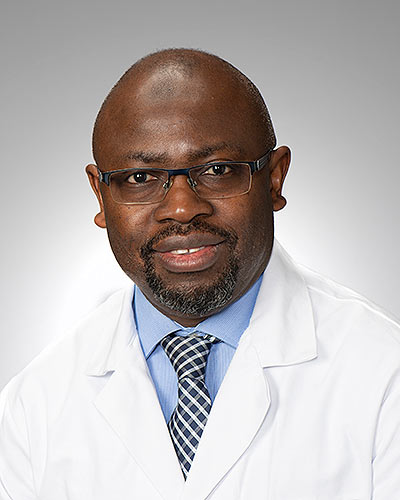
Monday, October 02, 2023
Internationally Recognized Thoracic Oncologist Dr. Taofeek K. Owonikoko Named Executive Director of the University of Maryland Marlene and Stewart Greenebaum Comprehensive Cancer Center
University of Maryland School of Medicine (UMSOM) Dean Mark T. Gladwin, MD, and University of Maryland Medical Center (UMMC) President & CEO Bert W. O’Malley, MD, announced today that Taofeek K. Owonikoko, MD, PhD, a distinguished physician-scientist with a global reputation in thoracic oncology, has been appointed Executive Director of the University of Maryland Marlene and Stewart Greenebaum Comprehensive Cancer Center (UMGCCC). Dr. Owonikoko will join the faculty of the University of Maryland School of Medicine (UMSOM) as The Marlene and Stewart Greenebaum Professor in Oncology in the Department of Medicine and Executive Director of the UMSOM Program in Oncology. He will also become Chief of Service at UMMC. As the lead Oncologist for both UMMC and UMSOM, he will assume the positions of Senior Associate Dean for Cancer Programs at UMSOM and Associate Vice President for Cancer Programs at University of Maryland, Baltimore (UMB).
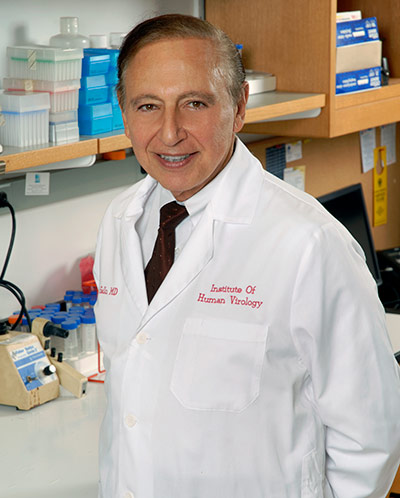
Monday, October 31, 2022
NCI Grants Awarded to IHV to Prevent Cancer and Improve Screening in Sub-Saharan Africa
Institute of Human Virology (IHV) researchers at the University of Maryland School of Medicine (UMSOM) have received two five-year awards from the National Institutes of Health’s National Cancer Institute (NCI) for a total of $7.5 million. One award aims to reduce the incidence of lung cancer and other cancers associated with using tobacco in Botswana. The other is focusing on improving screening and treatment of anal precancer in Nigeria. Both grants will make use of existing HIV treatment and prevention infrastructure in low- and middle-income countries to reach people living with HIV who are most at risk for these particular types of cancers.
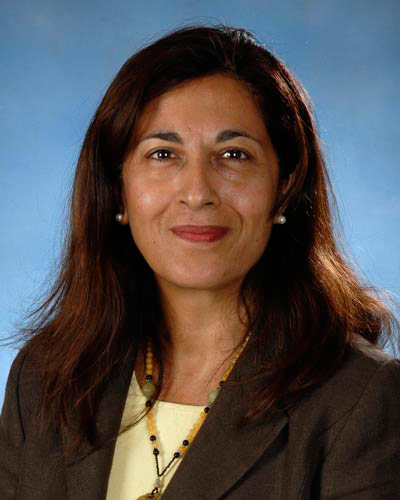
Tuesday, July 14, 2020
UM School of Medicine Researchers Identify Mechanism for Treating Cancer Cells
Researchers at the University of Maryland School of Medicine (UMSOM) have identified a surprising new mechanism that may significantly expand use of an important cancer drug, called a PARP inhibitor. These drugs are currently only approved to be used in those with certain mutations in the BRCA1 or BRCA2 genes that are associated with breast and ovarian cancers. The new findings were published online last week in the Proceedings of the National Academy of Science (PNAS) journal in collaboration with a group at Johns Hopkins School of Medicine.
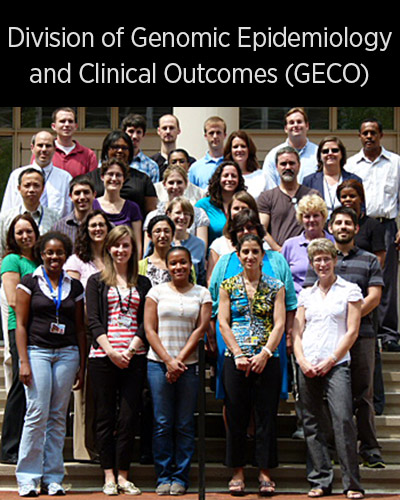
Thursday, March 05, 2020
Preventing COVID-19 (coronavirus) in Maryland Hospitals:
Hospital epidemiologists are doctors who prevent infections. World leaders in hospital epidemiology and infectious disease prevention, the physicians and scientists based in the Division of Genomic Epidemiology and Clinical Outcomes (GECO) at the University of Maryland School of Medicine are preparing our healthcare system for COVID-19 and COVID-19 transmission prevention.
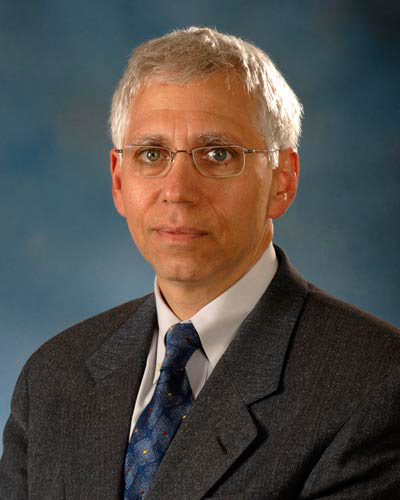
Tuesday, September 10, 2019
Multicomponent Home-Based Treatments Improve Mobility in Older Adults After Hip Fracture, New Research Shows
Each year more than 260,000 older Americans are hospitalized for hip fractures, a debilitating injury that can severely and permanently impact mobility. Researchers at the University of Maryland School of Medicine (UMSOM) studied two types of home-based interventions and discovered that these treatments are effective in helping individuals regain their ability to walk, but not enough to do every day functions like crossing the street.

Thursday, September 05, 2019
UMSOM's Dr. Jay Magaziner Elected President of Fragility Fracture Network
Jay Magaziner, PhD, MSHyg, Professor and Chair of the Department of Epidemiology and Public Health at the University of Maryland School of Medicine (UMSOM), was elected to serve as president of the Fragility Fracture Network (FFN), a global network of professionals that help sets policy and care standards for treatment and secondary prevention of serious fractures impacting mobility, such as spinal and hip fractures.

Tuesday, February 12, 2019
UMSOM Scientists Call for Unrestricted Usage of Public Genome Data
Researchers at the Institute for Genome Sciences (IGS) at the University of Maryland School of Medicine (UMSOM) called for open access to genome data, stating that unrestricted usage is needed for progress in combating the world’s most serious diseases.

Thursday, September 27, 2018
University of Maryland School of Medicine Scientist Receives Prestigious Microbiome Award
Owen White, PhD, professor of epidemiology and public health, and Associate Director for Informatics at the Institute for Genome Sciences (IGS) at the University of Maryland School of Medicine (UMSOM), has received the 2018 Microbiome Pioneer Award. The prestigious honor is part of the Bioinformatics for the Microbiome Symposium organized by Stanford University. The microbiome is the name given collectively to the community of trillions of microbial organisms that live on and within our bodies.
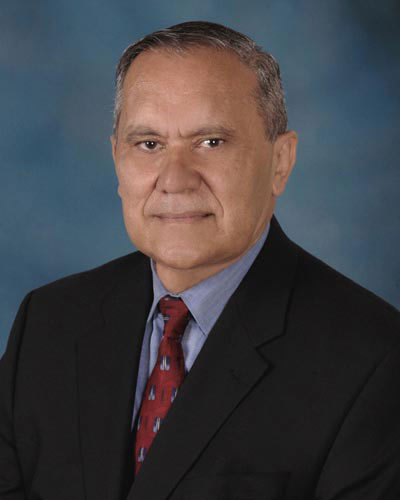
Monday, July 23, 2018
In Memoriam: Edson X. Albuquerque, MD, PhD, Internationally-Renowned Pharmacologist and Toxicologist at UM School of Medicine
Edson Xavier Albuquerque, MD, PhD, an internationally-acclaimed toxicologist who had served on the UM School of Medicine faculty since 1974, has passed away.
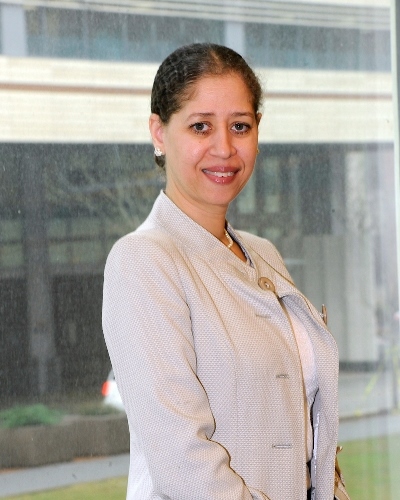
Monday, June 18, 2018
Dr. Diane Marie St. George Promoted to Vice Chair of Academic Programs in the Department of Epidemiology and Public Health
Jay Magaziner, PhD, MS Hyg, Professor and Chair of the Department of Epidemiology and Public Health (EPH) at the University of Maryland School of Medicine (UMSOM), along with UMSOM Dean E. Albert Reece, MD, PhD, MBA, announced today that Diane Marie St. George, PhD, has been promoted from Director to Vice Chair of Academic Programs in the Department of Epidemiology and Public Health. The position was previously held by Patricia Langenburg, PhD, Professor Emeritus.

Tuesday, March 22, 2016
Program in Health Disparities and Population Health at University of Maryland School of Medicine Moving Forward in Department of Epidemiology and Public Health
Jay S. Magaziner, PhD, MS, Hyg, Professor and Chair, Department of Epidemiology and Public Health (EPH) at the University of Maryland School of Medicine (UM SOM) and Dean E. Albert Reece, MD, PhD, MBA, announced today that the Program in Health Disparities and Population Health, formerly the Program in Minority Health and Health Disparities in Education and Research (PMHHD) led by the now-retired Dr. Claudia Baquet, has a new home in the Department of Epidemiology and Public Health.
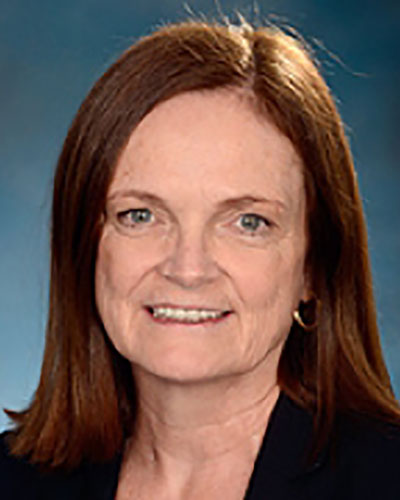
Wednesday, March 16, 2016
UM SOM Epidemiologist Joanne F. Dorgan Named Director of the Division of Cancer Epidemiology
Jay S. Magaziner, PhD, MS Hyg, Professor and Chair of the Department of Epidemiology and Public Health (EPH) in the University of Maryland School of Medicine (UM SOM), along with UM SOM Dean E. Albert Reece, MD, PhD, MBA, announced today that Joanne F. Dorgan, PhD, MPH, Professor in the Division of Cancer Epidemiology within the Department of Epidemiology and Public Health, has been appointed Director of the Division of Cancer Epidemiology. Dorgan succeeds Division Director William A. Blattner, MD, co-founder and associate director of the UM SOM Institute of Human Virology, who retired on January 31, 2016.

